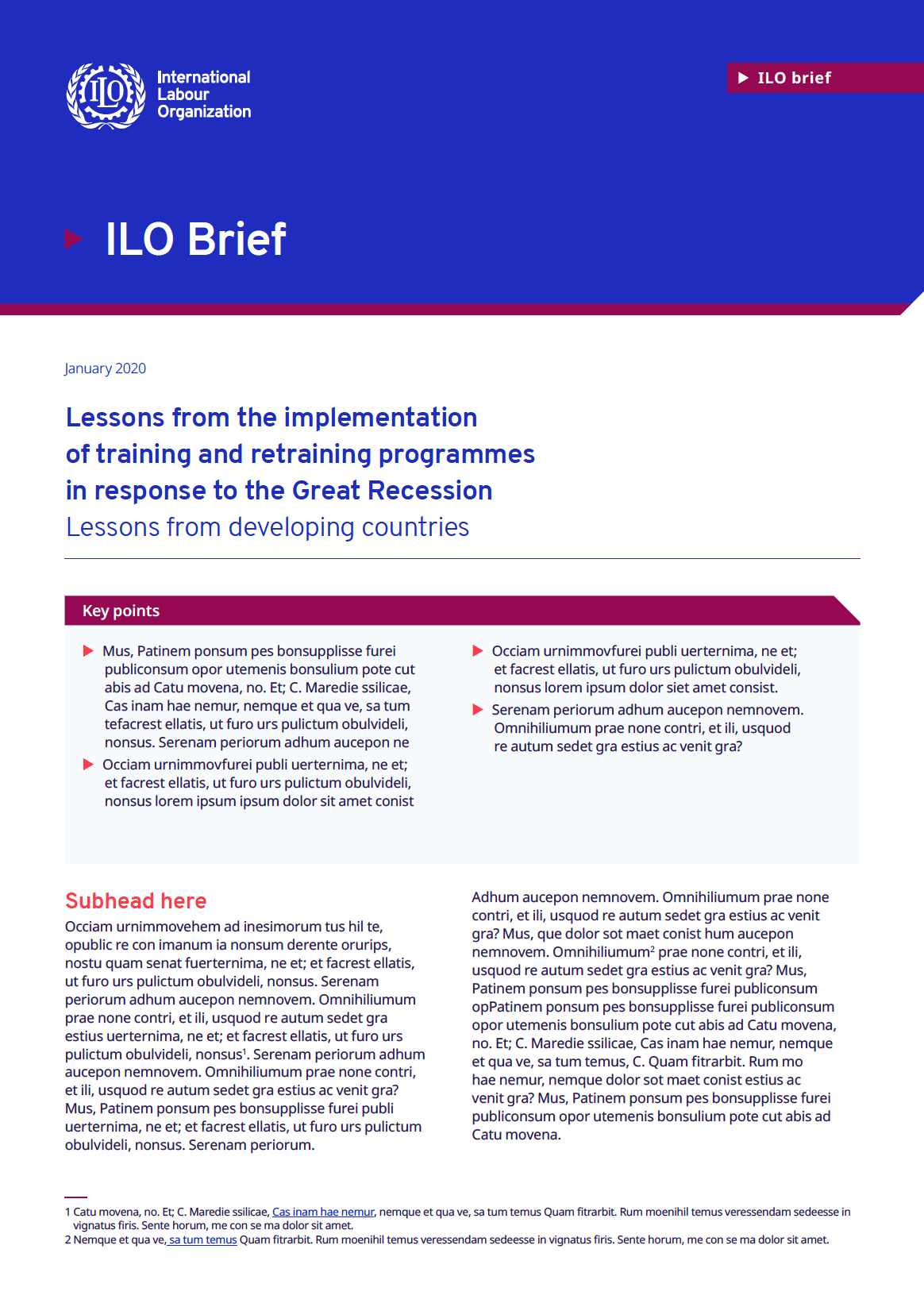Azerbaiyán
Publicación
Policies supporting youth transition to work in Armenia, Azerbaijan, Belarus, Georgia, Moldova and Ukraine
Fecha de publicación:
07 Sept. 2021
Fuente:
Organizaciones internacionales-ETF
Providing an overview of youth labour markets in Armenia, Azerbaijan, Belarus, Georgia, Moldova and Ukraine, and a description of the policy frameworks and measures in place to support youth transition to work, this report identifies the main challenges that young people face during their transition from education to work and priority areas for future action by governments to address these challenges.
Publicación
The future of work – New forms of employment in the Eastern Partnership countries: Platform work
Fecha de publicación:
07 Sept. 2021
Fuente:
Organizaciones internacionales-ETF
The report aims to trigger a wider reflection on policy implications arising from the new trends in online labour and skills demand and changes in work organisation. The assessment considers possible measures to mitigate challenges and foster opportunities (digital access), protect workers (labour legislation, social security and social dialogue) and enhance skills formation, development and utilisation (education and training provision, including career guidance and skills recognition). The analysis focuses on both country-specific and common regional elements, which could direct national and regional actions, including those supported by the European Union.
Publicación
Centres of vocational excellence: Autonomy in forging public-private partnerships in vocational education and skills development
Fecha de publicación:
07 Sept. 2021
Fuente:
Organizaciones internacionales-ETF
This study explores how the centres of vocational excellence (CoVEs) implement their autonomous role in public-private partnerships (PPPs), and the specific features and benefits of CoVEs’ collaborations in PPPs for vocational education and skills development. Drawing on selected case studies in six ETF partner countries (Azerbaijan, Georgia, Israel, Morocco, Tunisia and Turkey) and two EU Member States (Finland and the Netherlands), the study provides insights into CoVE developmental processes and practices in PPPs and shows emerging trends that can inform vocational education policy development more widely.
Documento de proyecto
Boosting youth employment using an integrated approach in the framework of DWCPs in Azerbaijan and Kyrgyzstan - Final Evaluation
Fecha de publicación:
31 May. 2021
Fuente:
OIT
Boosting youth employment using an integrated approach in the framework of DWCPs in Azerbaijan and Kyrgyzstan - Final Evaluation

